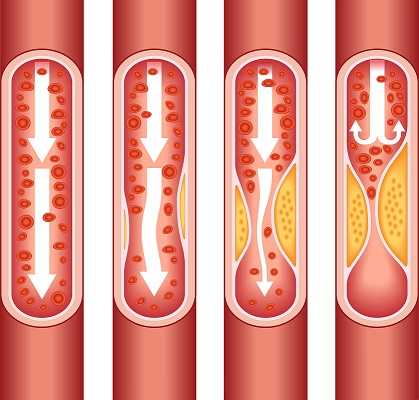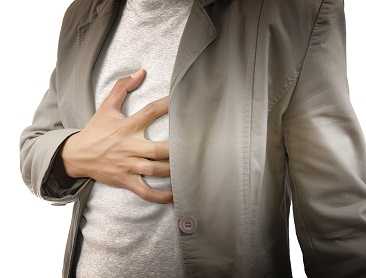Heart Disease Facts

As plaque builds up in the arteries of a person with heart disease, the inside of the arteries begins to narrow, which lessens or blocks the flow of blood.
Learn more about heart disease and its risk factors. It’s important for everyone to know the facts about heart disease [PDF-243K].
Heart Disease in the United States
- About 610,000 people die of heart disease in the United States every year–that’s 1 in every 4 deaths.1
- Heart disease is the leading cause of death for both men and women. More than half of the deaths due to heart disease in 2009 were in men.1
- Coronary heart disease (CHD) is the most common type of heart disease, killing over 370,000 people annually.1
- Every year about 735,000 Americans have a heart attack. Of these, 525,000 are a first heart attack and 210,000 happen in people who have already had a heart attack.2
Heart Disease Deaths Vary by Race and Ethnicity
Heart disease is the leading cause of death for people of most ethnicities in the United States, including African Americans, Hispanics, and whites. For American Indians or Alaska Natives and Asians or Pacific Islanders, heart disease is second only to cancer. Below are the percentages of all deaths caused by heart disease in 2008, listed by ethnicity.4
| Race of Ethnic Group | % of Deaths |
|---|---|
| American Indians or Alaska Natives | 18.4 |
| Asians or Pacific Islanders | 22.2 |
| Non-Hispanic Blacks | 23.8 |
| Non-Hispanic Whites | 23.8 |
| All | 23.5 |
Early Action is Important for Heart Attack

Know the warning signs and symptoms of a heart attack so that you can act fast if you or someone you know might be having a heart attack. The chances of survival are greater when emergency treatment begins quickly.
- In a 2005 survey, most respondents—92%—recognized chest pain as a symptom of a heart attack. Only 27% were aware of all major symptoms and knew to call 9-1-1 when someone was having a heart attack.5
- About 47% of sudden cardiac deaths occur outside a hospital. This suggests that many people with heart disease don’t act on early warning signs.6
Heart attacks have several major warning signs and symptoms:
- Chest pain or discomfort.
- Upper body pain or discomfort in the arms, back, neck, jaw, or upper stomach.
- Shortness of breath.
- Nausea, lightheadedness, or cold sweats.
Americans at Risk for Heart Disease
High blood pressure, high cholesterol, and smoking are key risk factors for heart disease. About half of Americans (47%) have at least one of these three risk factors.7
Several other medical conditions and lifestyle choices can also put people at a higher risk for heart disease, including:
- Diabetes
- Overweight and obesity
- Poor diet
- Physical inactivity
- Excessive alcohol use
CDC Fact Sheets Related to Heart Disease
- Heart Disease Fact Sheet
- Men and Heart Disease
- Women and Heart Disease
- Atrial Fibrillation
- Cardiomyopathy
- Heart Failure
- Signs and Symptoms of a Heart Attack
- Aortic Aneurysm
- Cholesterol
- High Blood Pressure
- Pulmonary Hypertension Fact Sheet
References
- CDC, NCHS. Underlying Cause of Death 1999-2013 on CDC WONDER Online Database, released 2015. Data are from the Multiple Cause of Death Files, 1999-2013, as compiled from data provided by the 57 vital statistics jurisdictions through the Vital Statistics Cooperative Program. Accessed Feb. 3, 2015.
- Mozaffarian D, Benjamin EJ, Go AS, et al. Heart disease and stroke statistics—2015 update: a report from the American Heart Association. Circulation. 2015;131:e29-322.
- Heidenreich PA, Trogdon JG, Khavjou OA, et al. Forecasting the future of cardiovascular disease in the United States: a policy statement from the American Heart Association. Circulation. 2011;123:933-44. Epub 2011 Jan 24.
- CDC. Deaths, percent of total deaths, and death rates for the 15 leading causes of death in 10-year age groups, by race and sex: United States, 2013.
- CDC. Disparities in Adult Awareness of Heart Attack Warning Signs and Symptoms—14 States, 2005. MMWR. 2008;57(7):175–179.
- CDC. State Specific Mortality from Sudden Cardiac Death: United States, 1999. MMWR. 2002;51(6):123–126.
- Fryar CD, Chen T, Li X. Prevalence of Uncontrolled Risk Factors for Cardiovascular Disease: United States, 1999–2010 [PDF-323K]. NCHS data brief, no 103. Hyattsville, MD: National Center for Health Statistics. 2012.
- Page last reviewed: August 24, 2017
- Page last updated: August 24, 2017
- Content source:



 ShareCompartir
ShareCompartir